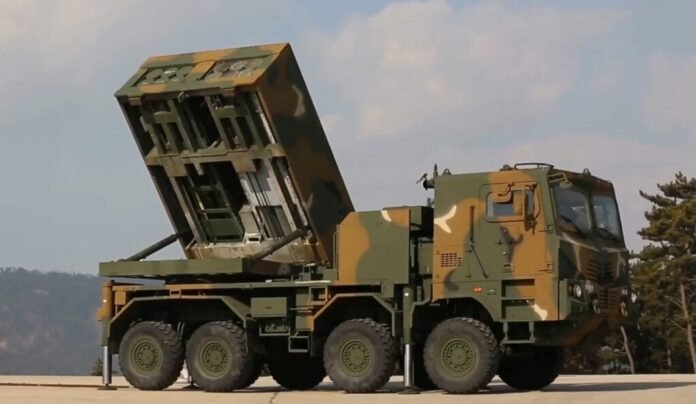New Delhi: Estonia inked a deal to purchase K239 Chunmoo rocket launchers, made by Hanwha Aerospace of South Korea, for its next tranche of launchers, a move that comes after public suggestions that a second order of American-made High Mobility Artillery Rocket Systems (HIMARS) would take too long.
“It is important for Estonia to have the ability to influence the enemy deep within its territory. To this end, it is necessary to increase Estonia’s deep-strike capability with additional rocket launchers,” Estonian Minister of Defence Hanno Pevkur said in a press release. The release did not disclose how many Chunmoo systems Estonia will receive, nor how much the deal is worth.
Estonia first signed an agreement in 2022 for six Lockheed Martin-made HIMARS worth $200 million. Those systems were delivered earlier this year. Tallinn had been planning on a second order, but after concerns of production delays, Pevkur said he was eyeing other systems.
In a February interview, Pevkur said Tallinn was considering the Chunmoo instead. The latest release, however, states the order of Chunmoos will be an addition to more HIMARS units still sought by Estonia.
“We began developing our deep-strike capability with the acquisition of US HIMARS rocket launchers, and we have also agreed with the US on the acquisition of additional HIMARS units, for which we are currently awaiting exact delivery dates from the US,” Pevkur added in the announcement.
In addition to the Chunmoo, Estonia’s K9 self-propelled howitzers are produced by Hanwha Aerospace.
The deal with Estonia appears to be the latest in a broader move by Hanwha to break through to the European market. Last week, the head of Hanwha Global Defence, Michael Coulter, said the company is looking to have “footprints in key global markets like what we started with in Australia and are now doing in Europe.”
Separately, Hanwha announced another partnership on the continent. Hanwha and Germany’s Diehl Defence signed a memorandum of understanding to cooperate in ground-based air defence.
“This venture combines complementary capabilities of both companies and is intended to open up new market opportunities by jointly offering solutions to potential customers including, but not limited to, Korea (Republic of Korea),” the announcement read.






